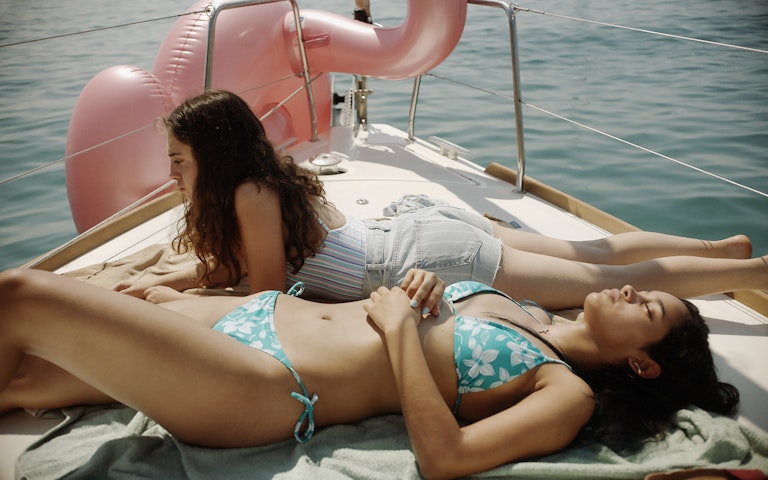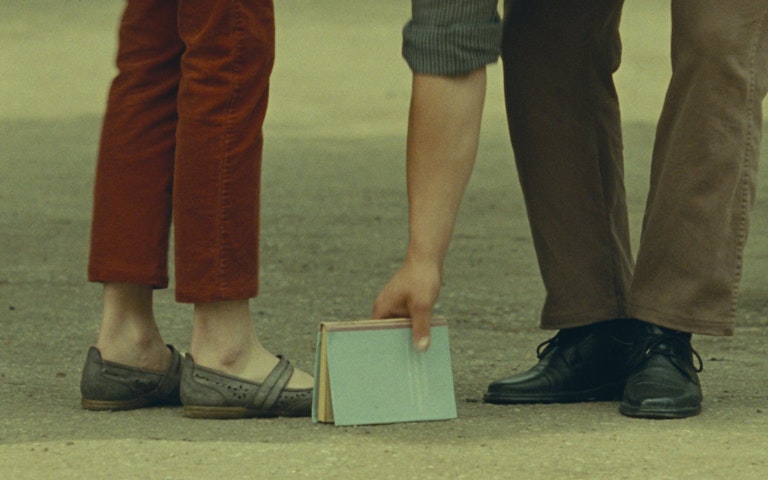Young Critics Review: Vortex

Two sides to every story
“Watching cinema is like being in heaven.” The nameless father in Gaspard Noé’s Vortex overflows with passion for cinema and its dream-like character. An obsessed cinephile, he believes cinema and dreaming to be one: both sleeper and spectator turn all their attention on the images that appear before their eyes. To him, this is the most “wonderful situation”.
Following a career of controversial films about sex, drugs, violence and how they go hand in hand, Noé surprises with a fragile portrait about a nameless mother (Françoise Lebrun) and father (Dario Argento). She, a retired psychiatrist, suffers from an advanced form of dementia and slowly loses her grip on reality. When the confusion and bewilderment hit the hardest, she cannot even recognize her own husband and wants to kiss her son. No matter how hard she makes his life, no matter how many times he cries out that she has gone completely insane, the father does not accept their son’s (Alex Lutz) proposal to move both parents to a rest home. The father has already lost the woman he married. He does not want to lose his past as well.
Whereas other recent films about elderly people’s last struggles focus on either the ill person, like in Florian Zeller’s The Father, or on one of the relatives like in François Ozon’s Tout s’est bien passé, Noé implements both perspectives at the same time, and even in the same image. Except for the utopian one-minute prologue in which the couple raises a glass to the future, Vortex consists of split screen images only—an artistic choice with virtually no precedents outside of the domain of non-narrative, experimental film. This enables him to intensify the sense of coexistence and simultaneity already implied in similar techniques such as shot-reverse shot editing and cross cutting. Shots of the father’s search for his disappeared wife do not simply follow those of her purposeless wandering, but are projected at the same time. The spectator does not only see what the father does not see, but also that he does not see it. Juxtaposing two different, equally important perspectives on the same action, he acknowledges that there are indeed two sides to every story.
Instead of using the split screen to show off his own technical inventiveness, or to increase the spectacle, Noé employs it to create meaning, empathy and emotion. Connecting two different viewpoints or even two different places, it visually emphasizes the couple’s disconnectedness from each other. At a few meaningful moments, the camera angles differ only in a few degrees and the frames match almost perfectly. Trying to comfort his frightened wife, the father reaches his hand from one screen to another and caresses her back until she calms down. Paradoxically, the couple’s continuous visual separation enhances the intimacy and commitment of this small but remarkable gesture.
Even when the separation between the two screens remains intact, they are often visually related to each other. The divided, parallel images of the father and the mother laying down horizontally during the night look so similar that their differences seem negligible, if not that the father is dying from a sudden heart attack and the mother is peacefully sleeping in her bed. When the mother pushes out all her pills one by one and flushes them down the toilet, the corresponding image reveals her son relapsing to his drug addiction.
This thoughtful juxtaposition of contiguous perspectives or parallel images generates an emotional intensity that was absent from the shock effects and provocative content of Noé’s earlier work. In Irreversible (2002), the 50-something enfant terrible of the French cinema followed a young woman who was brutally raped and seeks revenge, and in Love (2015) he portrayed the sexual tensions that arises when a couple invites their neighbour to their bed. Portraying an equally charged topic, in Vortex, Noé chooses tenderness over provocation and intimacy over extravagance. Without a compelling soundtrack, an introspective voice-over or an excess of point of view shots, he evokes empathy and emotional involvement in a non-manipulative way. And that is, indeed, to use the father’s words, a “wonderful situation”.

Hanne Schelstraete
Music Projects Coordinator


